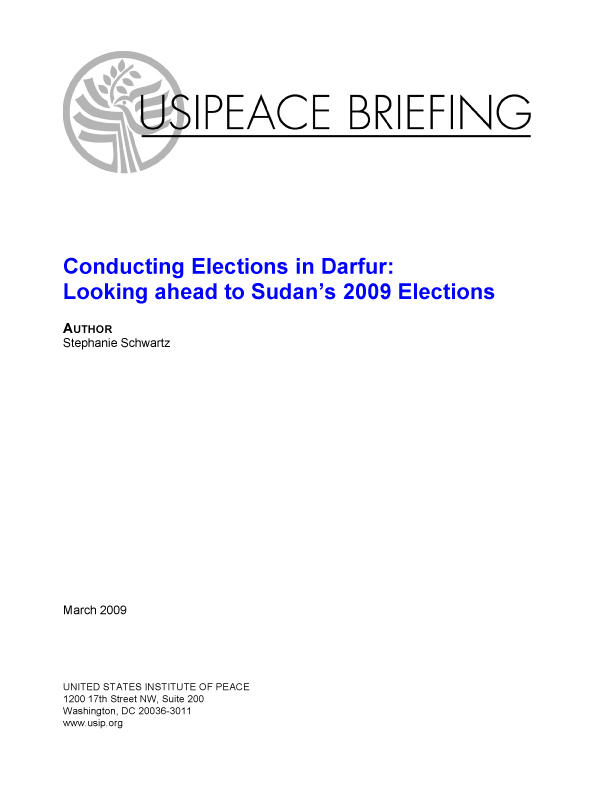Conducting Elections in Darfur: Looking ahead to Sudan’s 2009 Elections
With elections planned in Sudan in 2009, the question of how residents of the Darfur region should participate points to a number of challenges that remain unanswered. Is the security situation in Darfur adequate to permit elections?

Background
The 2005 Sudan Comprehensive Peace Agreement (CPA) between North and South Sudan requires elections across all levels – local, state and national – by July 2009. Preparations for these elections have been slowly inching along. The National Election Act, passed in July 2008, was supposed to be enacted in 2006. The National Election Commission was only appointed in late 2008, and the census, meant to be completed by July 2007, was undertaken in April/May 2008 but results have yet to be released.
As the CPA deadline for elections approaches, the question of how Darfur can and should participate remains unclear. The region is still experiencing violent conflict, with millions displaced and living in IDP camps and refugee camps in neighboring Chad. However, the specific challenges for elections in Darfur were not sufficiently addressed in the CPA or in the National Elections Act, and it has yet to be specified how elections will accommodate Darfuris.
About the Author
This USIPeace Briefing was written by Stephanie Schwartz of the Center for Mediation and Conflict Resolution. The views expressed here are not necessarily those of USIP, which does not advocate specific policies.
The United States Institute of Peace is an independent, nonpartisan institution established and funded by Congress. Its goals are to help prevent and resolve violent international conflicts, promote post-conflict stability and development, and increase conflict management capacity, tools, and intellectual capital worldwide. The Institute does this by empowering others with knowledge, skills, and resources, as well as by directly engaging in peacebuilding efforts around the globe.



